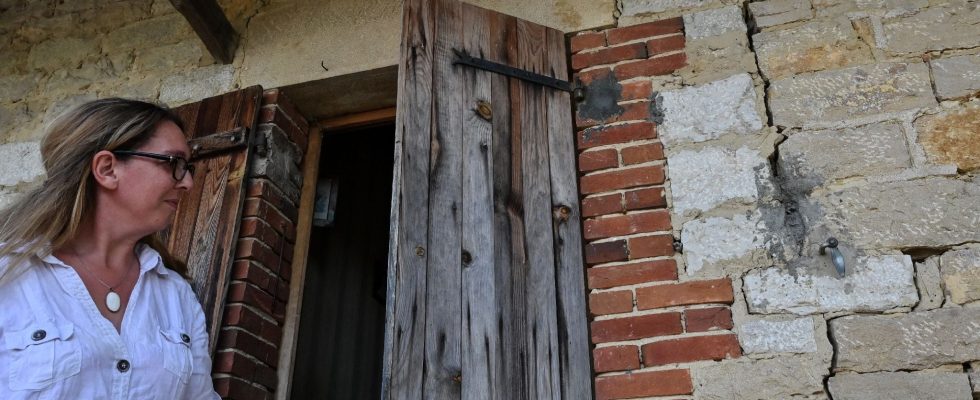Housing. A primary need that is struggling to be satisfied in France in 2023. And the situation is not about to improve. Already subject to multiple constraints – environmental standards, high land prices, rent controls, etc. – the real estate sector is today disrupted by the rise in rates. Our explanations and ways to break the impasse in this six-part special report.
Hell is planted with good intentions. In Roncq, in the Lille metropolis, the town hall had the custom of offering a tree for each birth. With hindsight, Vincent Ledoux, the councilor of this commune from 2001 to 2017, wonders today if these plantations did not have perverse effects. The type of plants chosen, their distance from the building… These are parameters to which we paid little attention a few years ago. We now know their potential impact on a phenomenon, itself amplified by an increasingly dry climate: RGA, for “shrinkage-swelling of clays”. Or the variation in volume of clay soils depending on their water content, which weakens foundations and cracks houses, making them uninhabitable.
RGA, an insidious scourge
This scourge has no first name. Less spectacular than storms Ciaran or Domingos, it is more insidious. With a large-scale risk: more than 11 million individual houses are exposed, a good half of the French stock, including 3.3 million at a level described as “strong”. Vincent Ledoux, who became a Renaissance du Nord deputy and author of a report on the subject submitted to the Minister of the Interior in October, is campaigning to encourage prevention. “The RGA risk is truly unthinkable in public action,” he laments, calling for the creation of a “clay diagnosis”, in the same way as the energy diagnosis. “Certain degraded properties are sold at the price of the land,” warns the elected official. And even after repair, who will take the risk of buying these houses? And who will agree to insure them?
In 2022, compensation linked to the RGA phenomenon, triggered when the causal link between the damage and drought is recognized, reached the unprecedented level of 2.9 billion euros, or a large quarter of the annual envelope linked to climatic disasters. This is just the beginning. “Over the next thirty years, the cumulative cost of drought losses could triple compared to the last thirty years, going from 14 to 43 billion euros,” warns France insurers.
Tomorrow, two-tier insurance?
Companies are sounding the alarm, worried about the repercussions of climate change on the balance of the system. Some insurers say they have been losing money in the home multi-risk segment for years. The natural disaster compensation scheme (“Cat nat”) has been in deficit since 2015. The additional premium levied on the contribution to insurance contracts for individuals and businesses to finance this public-private partnership, between insurers and the Central Reinsurance Fund, is no longer sufficient. Not to mention that the “Cat nat” regime does not cover the consequences of storms, borne by insurers alone – 6.4 billion euros last year.
“The climate shock is so violent that, if nothing is done collectively, we will inexorably move towards a very expensive insurance system, much less covering – that is to say with high deductibles and guarantees more limited -, and which could exclude coverage of certain activities or geographical areas. A break in equality. This would be the worst scenario”, fears Philippe-Michel Labrosse, the boss of Abeille Assurances. Nicolas Théry, the president of Crédit Mutuel, refuses to accept such an exclusion: “There is no home insurance problem if the pooling of large numbers dominates the optimization of small numbers.” Which will not prevent the bill from swelling, for everyone.
“Insurability” is currently the subject of a mission, entrusted by Bercy and the Ministry of Ecological Transition to the former head of Crédit agricole assurances, Thierry Langreney. Its conclusions are expected in December.
.
